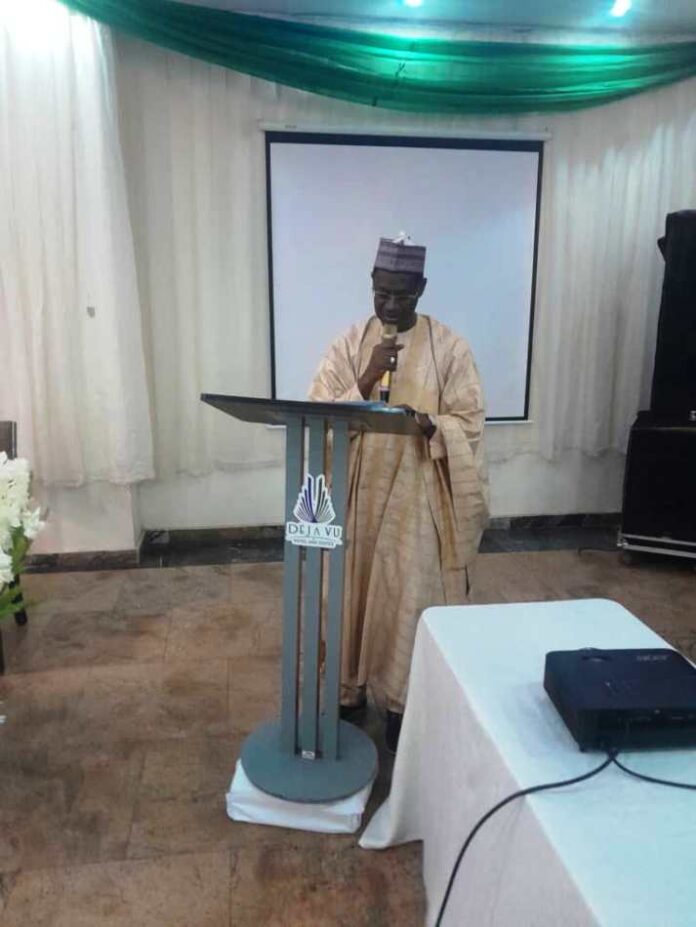……………….Says challenges of inplanned urban sprawl, inadequate infrastructure should be addressed.
………………..Urban centers are responsible for 27% of Nigeria’s total carbon emissions – Dangiwa.
………………..Concerted, collaborative efforts needed to combat challenges – Ondo Governor.
The Honourable Minister of Housing and Urban Development, Arc. Ahmed Musa Dangiwa has called on Directors and Heads of Town Planning Organizations in Nigeria to champion the development of inclusive, sustainable cities that promote economic growth and resilience.
Dangiwa made this charge in his keynote address at the Opening Ceremony of the 2024 National Conference of Directors and Heads of Town Planning Organizations organized by the Federal Ministry of Housing and Urban Development in Akure, Ondo State from Monday 14 to Wednesday 16 October 2024.
The Minister lauded the theme of this year’s conference, ” Effective Physical Planning as a Panacea for Integrated and Sustainable Urban Development in Nigeria”, noting that it has aligned with the Renewed Hope Agenda of the current administration, which seeks to build equitable and resilient cities across the country.
Highlighting Nigeria’s rapid urbanization, Dangiwa pointed out that the nation’s urban population has risen sharply, growing from 15% in 1960 to 54% in 2022, with projections indicating that by 2050, 70% of Nigeria’s population will reside in urban areas.
On his part , Ondo State Governor, Lucky Aiyedatiwa stated that concerted and collaborative efforts are needed to combat challenges in Nigerian cities.
The Ondo State Governor was represented by his Commissioner of Physical Planning and Urban Development, Gbenga Olaniyi.
The Governor mentioned that, Ondo State, as a case study, has taken deliberate measures which include; effective waste management and development of master plans for major cities as modalities to ensure healthy environment.
Minister Dangiwa emphasized the urgency of addressing the challenges of unplanned urban sprawl, inadequate infrastructure, and environmental sustainability.
“Nigeria is urbanizing at a rate of 3.8% annually, and we are now over 50% urban. By 2030, nearly 60% of our population will live in cities. This rapid urban growth has resulted in unplanned expansion, which has negatively impacted infrastructure, mobility, and access to basic services,” Dangiwa stated.
He cited the emergence of more than 360 new urban agglomerations between 2015 and 2020 as evidence of the spatial expansion that continues across the country.
The Minister further noted that Nigeria’s cities are not only growing but are also contributing to environmental challenges, including increased carbon emissions and inadequate waste management systems.
“Urban centers are responsible for 27% of Nigeria’s total carbon emissions, with energy, transport, and industry being the main contributors. We must act now to address these challenges if we are to build sustainable and livable cities.”
Dangiwa outlined the Ministry’s strategic initiatives to address these challenges. These include the comprehensive review of the 2012 National Urban Development Policy, which is soon to be approved by the Federal Executive Council, as well as the development of a National Policy on Rural Settlement Planning and a National Physical Development Plan aimed at promoting integrated and sustainable urban development.
He also announced the Ministry’s collaboration with the World Bank on key projects, including the Urban Livability and Mobility Programme and a National Land Registration, Titling, and Documentation Programme, which seeks to streamline land administration in Nigeria.
Accordingly, he explained the ongoing efforts of the Ministry in slum upgrades, urban renewal, and the housing sector, mentioning that 6,612 housing units across 13 states and the FCT are currently under construction under the Renewed Hope Cities and Estates Programme, with additional projects underway in Lagos, Kano, and Enugu.
He urged participants to embrace innovative approaches to physical planning and urban governance, stressing that effective planning is key to creating cities that are resilient, productive, and capable of driving economic growth. He also challenged participants to identify and address the systemic issues that hinder Nigeria’s urban development.
“Let us commit to building cities that work for all Nigerians – cities that are resilient, productive, and sustainable. I urge you to participate actively in this conference and take full advantage of the discussions and presentations. The future of our cities depends on the decisions we make today,” he concluded.
In a goodwill message, Chairman House of Representatives Committee on Planning and Regional Development, Hon Dr Abiante Awaji, described the theme of the conference apt and in line with providing a healthy environment.
Hon Awaji blamed absence of standard master plans in cities and plans alteration causing huge challenges, encouraging partnership of stakeholders in design and development control in order to get excellence in our cities.
Easier, in a welcome address, Permanent Secretary of the Federal Ministry of Housing and Urban Development, Dr Marcus Ogunbiyi, stated that , the Conference provides a platform for the participants to ruminate over issues that would positively reshape the human settlements’ systems of Nigeria. His address was read on his behalf by Director Urban and Regional Development in the ministry, Tpl Dr. Olakunde Akiona Dabid.
In attendance at the “Akure 2024′ Conference were Directors and Heads of Town Planning Organizations in Nigeria, including, officials of the Nigerian Institute of Town Planners (NITP) and Town Planners Registration Council of Nigeria (TOPREC).
The 2024 National Conference of Directors and Heads of Town Planning Organizations continues over the next few days in Akure, with town planners, experts, and government officials discussing solutions to Nigeria’s urbanization challenges.
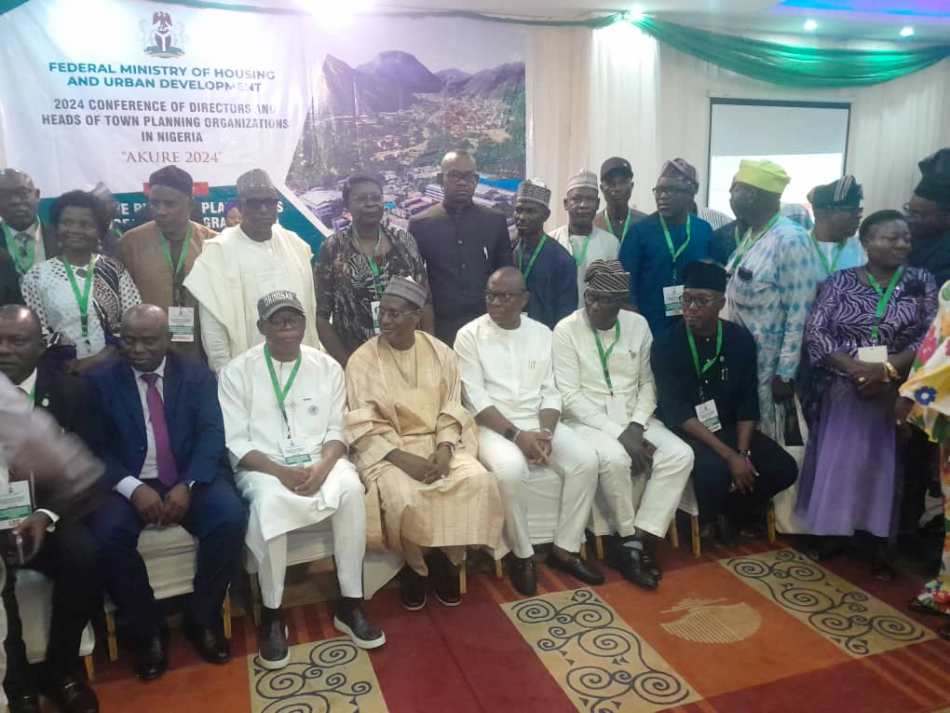
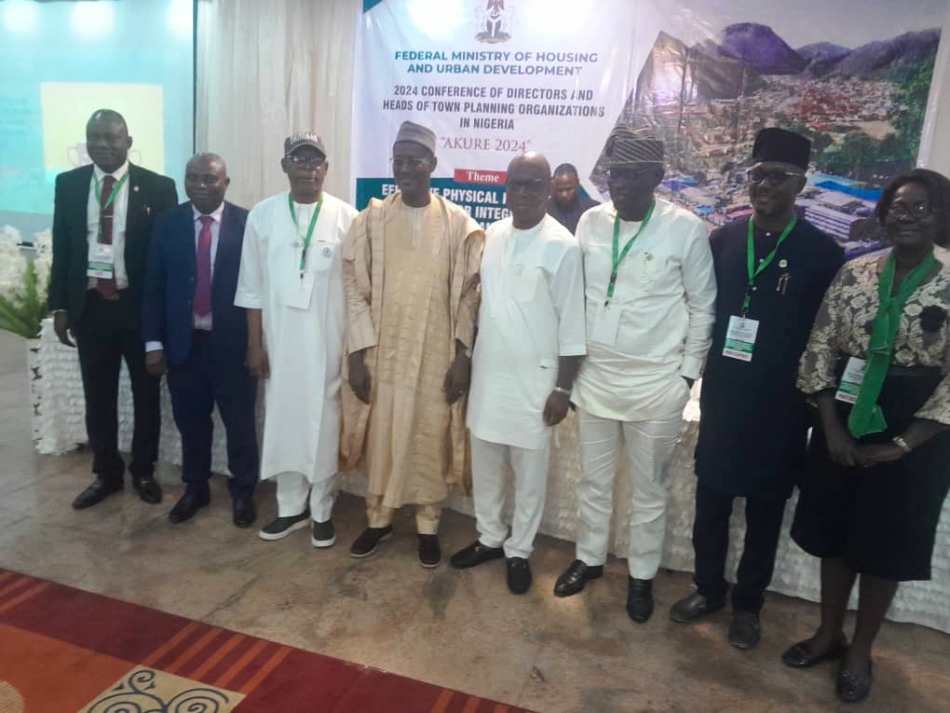
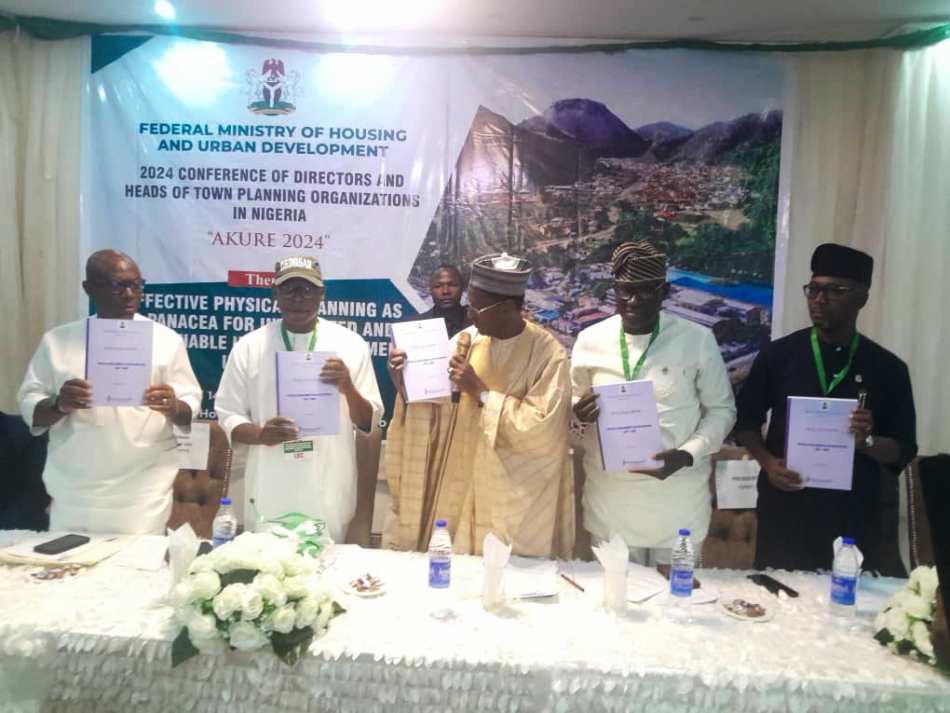
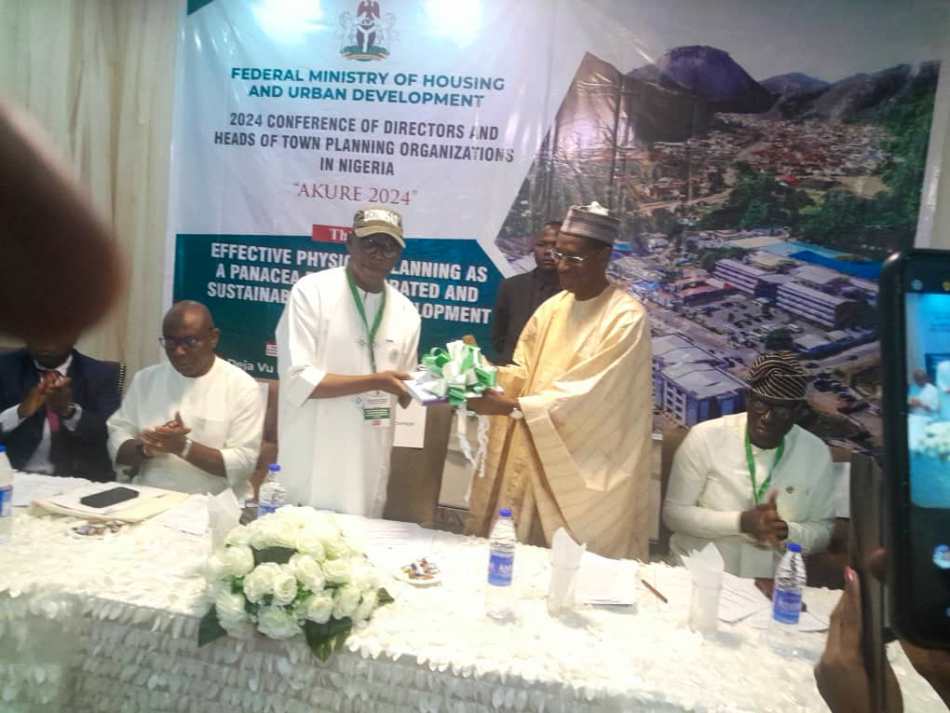
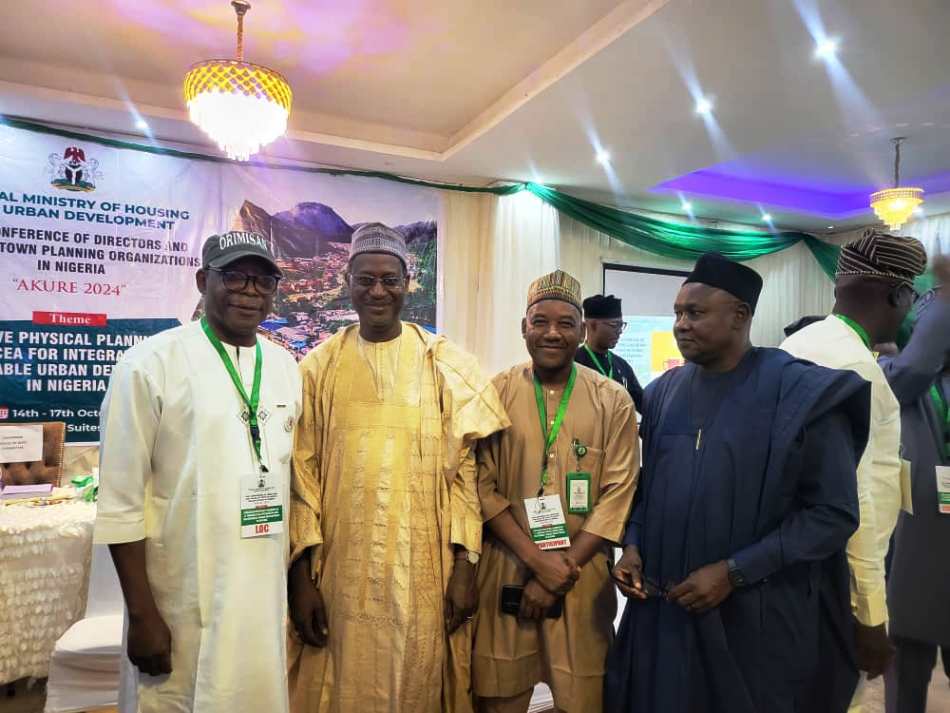
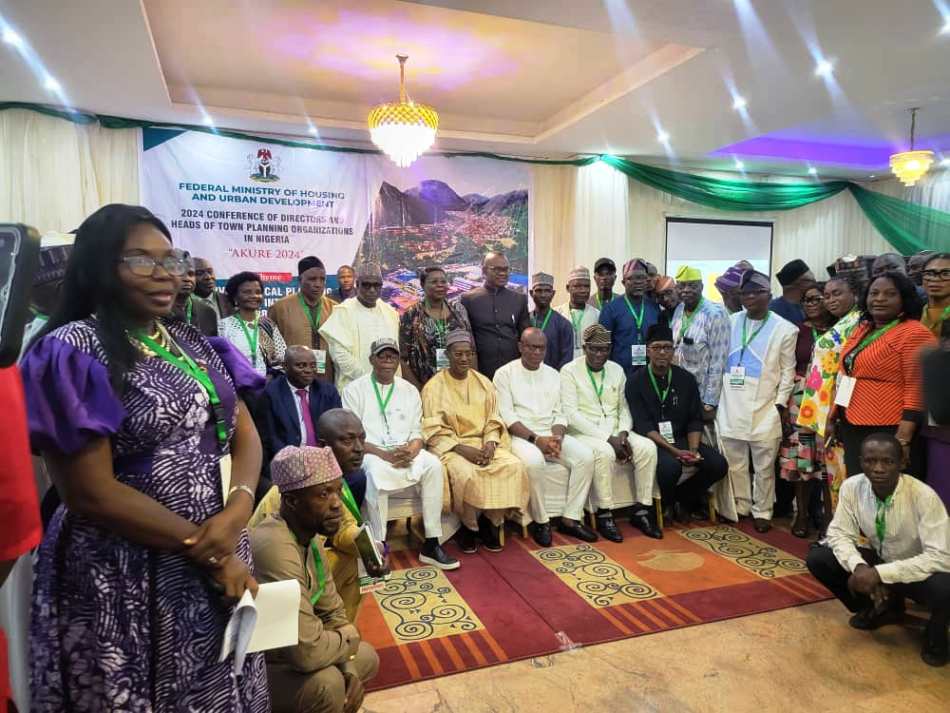
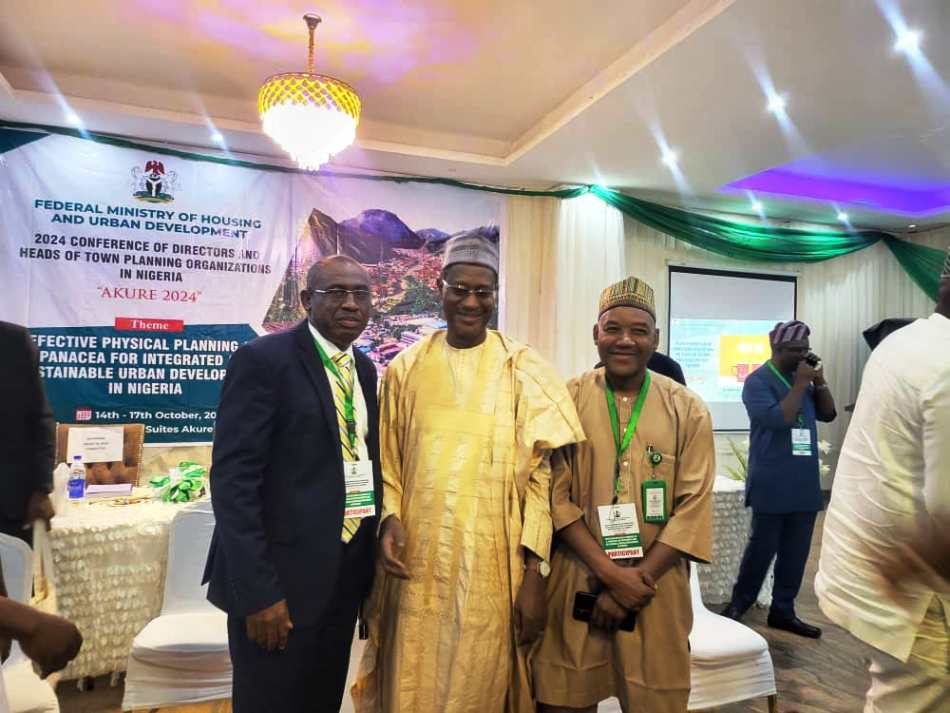
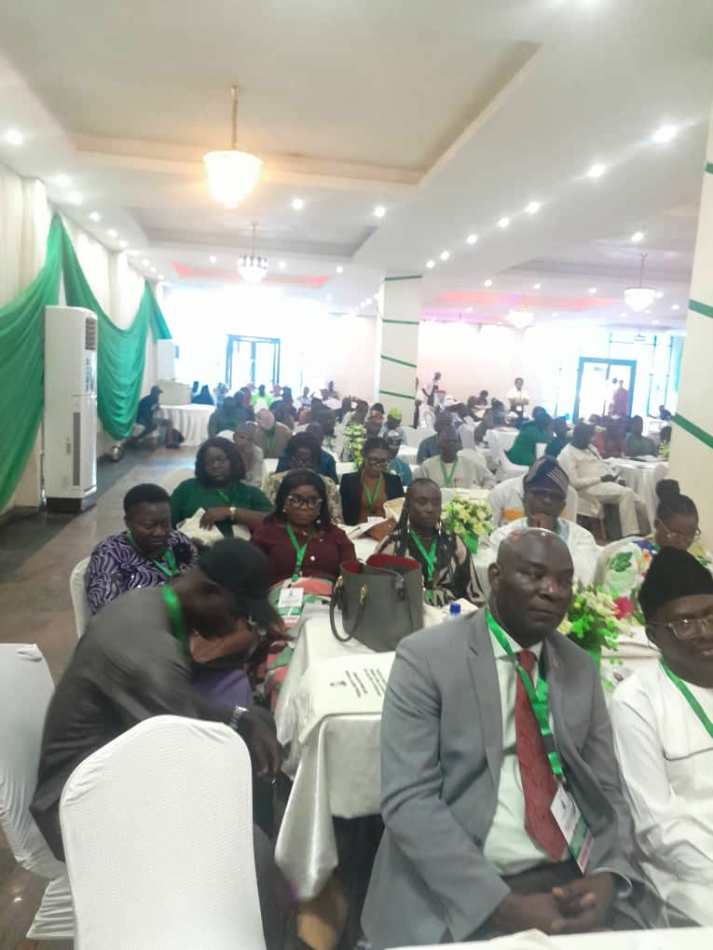
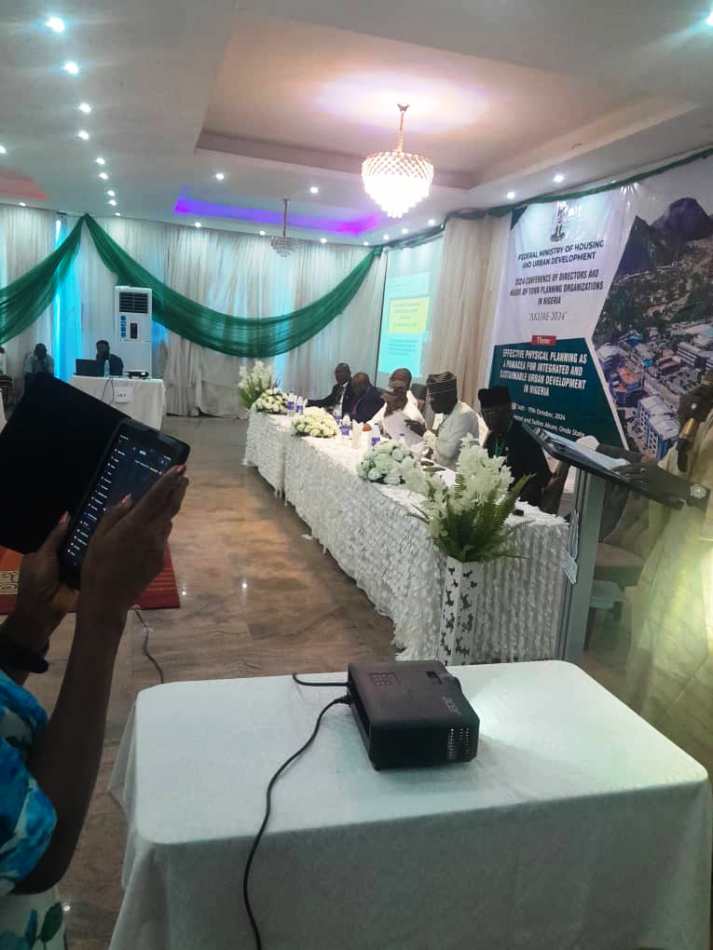
Salisu Badamasi Haiba
Director (Information and Public Relations)



